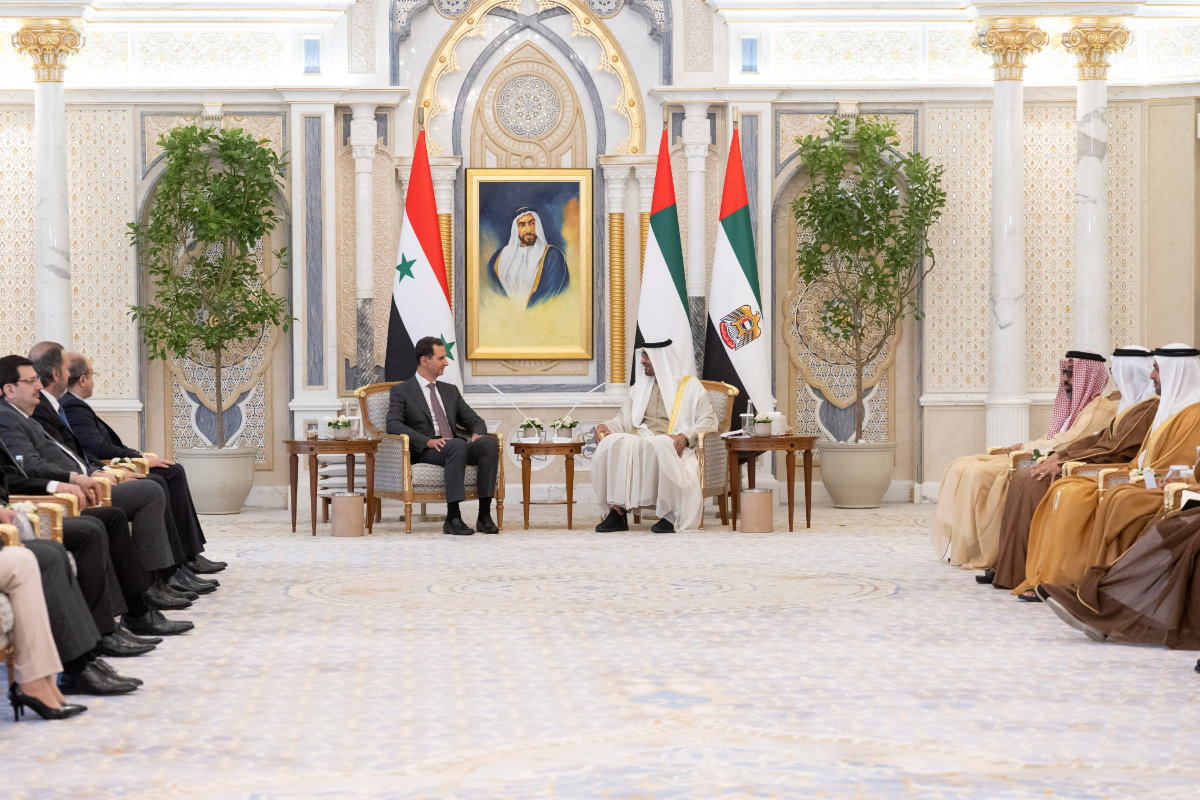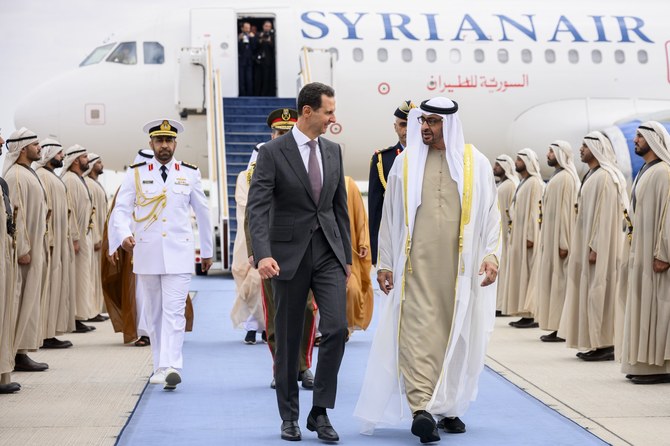DUBAI: The UAE’s president on Sunday told his Syrian counterpart it was time for diplomatically isolated Damascus to be reintegrated into the wider Arab region during a meeting in Abu Dhabi.
The trip by Syrian President Bashar Assad — his second to the UAE in as many years — comes after a visit to Oman last month, his only official engagements in Arab countries since the start of Syria’s war in 2011.
The visit coincides with amplified engagement by Arab states toward the Damascus government, which has been politically isolated in the region since the start of Syria’s war and was expelled from the Cairo-based Arab League in 2011 over its violent crackdown on pro-democracy demonstrations.
“Syria has been absent from its brothers for too long, and the time has come for it to return to them and to its Arab surroundings,” Sheikh Mohamed bin Zayed Al-Nahyan told Assad during a meeting at the presidential palace.
I welcomed President Bashar al-Assad of Syria to the UAE today, and we held constructive talks aimed at developing relations between our two countries. Our discussions also explored ways of enhancing cooperation to accelerate stability and progress in Syria and the region. pic.twitter.com/QlcIWomFDE
— محمد بن زايد (@MohamedBinZayed) March 19, 2023
The Emirati president called for efforts to facilitate the repatriation of Syrian refugees and endorsed engagement between Damascus and Ankara, which is now working toward a rapprochement with Assad after years of supporting rebels fighting his government.
“We held constructive talks aimed at developing relations between our two countries. Our discussions also explored ways of enhancing cooperation to accelerate stability and progress in Syria and the region,”
Sheikh Mohammed said on Twitter.
Abu Dhabi, which normalized relations with Assad’s government in 2018, has led aid efforts in the aftermath of the Feb. 6 earthquake that struck southeastern Turkiye and northern Syria, killing tens of thousands.
Analysts say the diplomatic momentum generated in the quake’s aftermath could bolster Damascus’s relations with Middle Eastern countries that have so far resisted normalization after more than a decade of war.

Sheikh Mohamed bin Zayed Al Nahyan, UAE president, meets with Syrian President Bashar Al Assad during a reception at Qasr Al Watan in Abu Dhabi on March 19, 2023. (UAE Presidential Court/Handout via REUTERS)
“The UAE’s approach and efforts toward Syria are part of a deeper vi- sion and a broader approach aimed at strengthening Arab and regional stability,” said Emirati senior presidential adviser Anwar Gargash.
“The UAE’s position is clear regarding the need for Syria to return to” its place in the Arab world and regain legitimacy in the region, Gargash said on Twitter.
“This was confirmed by His Highness Sheikh Mohammed bin Zayed during his meeting today” with Assad, the adviser added.
Assad praised the UAE’s role in strengthening relations between Arab countries. He criticized the policy of severing ties between Arab states as an “incorrect principle in politics,” arguing that relations should be “fraternal.”
Assad, accompanied by his wife Asma Al-Assad, arrived in the UAE on Sunday and was received by the UAE president at the presidential airport in Abu Dhabi.
Assad’s visit was marked with more ceremony than his trip to the UAE last year. He received a canon salute as his convoy entered the royal palace. Assad’s plane was greeted by Emirati fighter jets.














